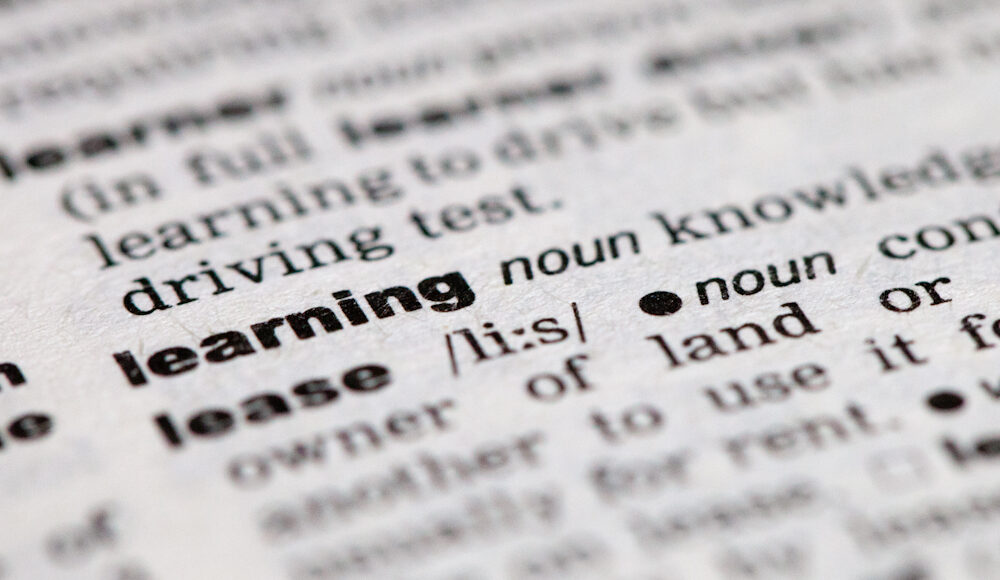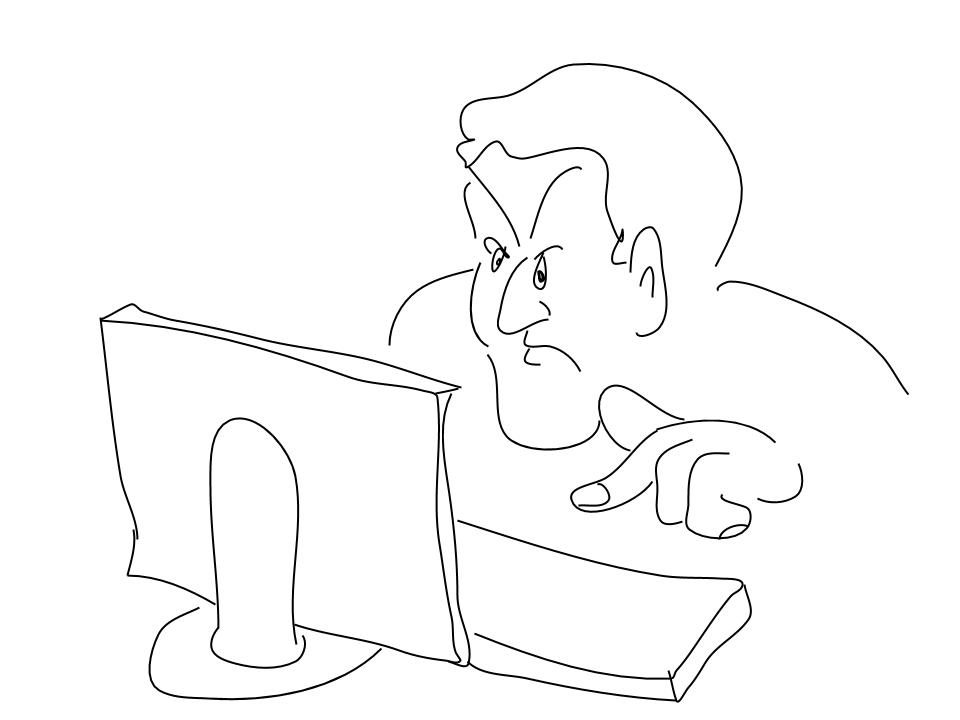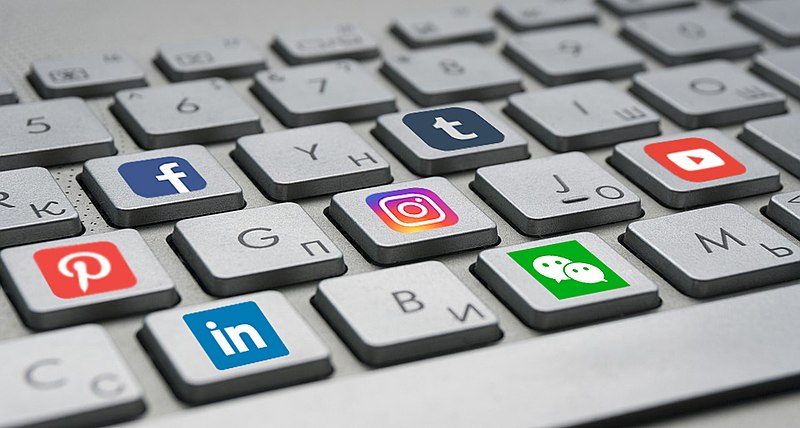Opinion | The Pain of Digging Deeper

When turning on any major news channel or scrolling through any social media platform, it can feel as though societal tensions are as high as ever. While we all want to live in a society of peace, stability, and unity, the social issues that continue to plague us can feed the pessimist in all of us, convincing many that there is no positive end in sight. A perusal of an average Twitter or Facebook thread provides countless digital fights that go nowhere and often devolve into name-calling and straw-man arguments. Ironically, despite this stone-walling and belittling, we often expect that by engaging in these arguments, we have the capacity to generate change in the minds of others and, in turn, create change in our world; and we absolutely do. Discussion and dialogue are undoubtedly necessary for affecting change in our society, but simply exposing ourselves to other people and opposing views is not enough to truly overcome prejudice or polarization. On an individual level, that change ultimately begins within, and we must consequently take it upon ourselves to better grasp and comprehend not only the beliefs of others, but our own as well.
Thanks to impressive technological innovations, we live in an era unlike any other time in history. With an unprecedented access to information, it is easy to believe that we are well-informed because of the limitlessness of the internet or the fact that we can easily tune into soundbites or “informative” videos that present topics parsimoniously and quickly. In reality, however, evidence has shown that this ubiquity of information, and our constant exposure to it, only deepens our confirmation biases, validating what we already believe in. Moreover, while the democratized public sphere provides a welcomed diversity of voices, many of these can be substantively lacking at best or flat out false at worst, like the misinformation encountered during the current pandemic or the 2016 US presidential election. As a result, the reality becomes that we can often barely scratch the surface when we decide to learn about something. We may take cursory glances at articles or blogs, but we would be hard-pressed to say that we make real, honest attempts to search for every source of information, including those that contradict our own views.

Oftentimes we are too eager to be right and affirm that our voice and opinion matters. We’ve become so quick to jump on bandwagons and take the moral high ground in search of some purpose or validation that we convince ourselves of having heard about controversies which have never even occurred. We don’t hesitate to pick up our digital pitchforks and torches to join the mob in order to bury someone without taking the time to contextualize or fully understand the situation. Evidently, this pattern is not universal, and individuals who use their voices to hold others accountable should not be demeaned or condemned; mobilizing online to speak truth to power is unquestionably important and valuable. But when every point of conflict or controversy becomes a vindictive crusade, topics that truly necessitate conversation aren’t afforded a fair exchange of ideas.
And despite the fact that an increasing number of us consume our news on social media, the platform’s varied voices fail to manifest themselves in every feed. The spectrum of voices we are exposed to narrows as we curate our news streams to adhere to our personal views and beliefs. On a platform where “dialogue” is about “destroying” or “tearing apart” opposing views, this outlet for knowledge and information only affirms our predetermined positions and pushes us to dig our heels in. This, of course, is not conducive to meaningful dialogue. As we paint the other as wrong and evil and insist that we are right and righteous, personalizing our exposure to news ultimately leads to more polarization and division. If discourse is founded upon demonizing and vilifying the opposing view, then how can any cooperation ever emerge within a society that is only getting more diverse?
As becoming “woke” and taking a stand against social injustices become more and more prevalent, it is increasingly important that we go beyond simply understanding these causes superficially. We often jump to conclusions without a holistic understanding of the situation or context, and when we are subsequently challenged by others, we lack the knowledge, tools, and language needed to engage in meaningful and productive conversation. In lacking these, we remain stuck in the quagmire of the status quo and prevent our growth, both on a personal and collective level. Moreover, when facing social issues with significant historical contexts, such as racial issues in North America as a whole, ignorance along with a lack of understanding and perspective is detrimental to the experiences of struggling individuals and peoples. To take a Canadian example, the Truth and Reconciliation Committee recognized that “too many Canadians know little or nothing about the deep historical roots” that underpin the experience of Indigenous Peoples and continue to shape their lives today. If we are to make real attempts at alleviating these social ills, then we need to commit the time, effort, and resources necessary to understanding them more deeply.

It can be disorienting and even painful to face truths that challenge our worldview. That being said, where would we be if we had never confronted difficult truths? Overcoming personal shortcomings and misgivings, such as our implicit biases and prejudices, along with important instances of social change are only possible through honest reflection and introspection. Change can be unnerving, and on a societal level it can often be disruptive, as it was throughout the American Civil Rights Movement for example. But while it’s uncomfortable to confront difficult truths about ourselves and our belief systems, avoiding this discomfort only impedes progress.
It can be tedious to teach and educate ourselves on opposing and differing viewpoints. It is much easier to live in the comfort of our own bubbles and remain convinced that we know everything there is to be known. The reality is, however, that there is always more to discover. If we are to attain the peaceful and prosperous society envisioned by many, each of us has a responsibility and obligation to hold ourselves to a higher standard — if we learned how to be hateful and angry, then we can learn to be loving and respectful.
Feature image “Learning” by Harry Plusk, licensed under CC BY-NC-SA 2.0
Edited by Justine Coutu
